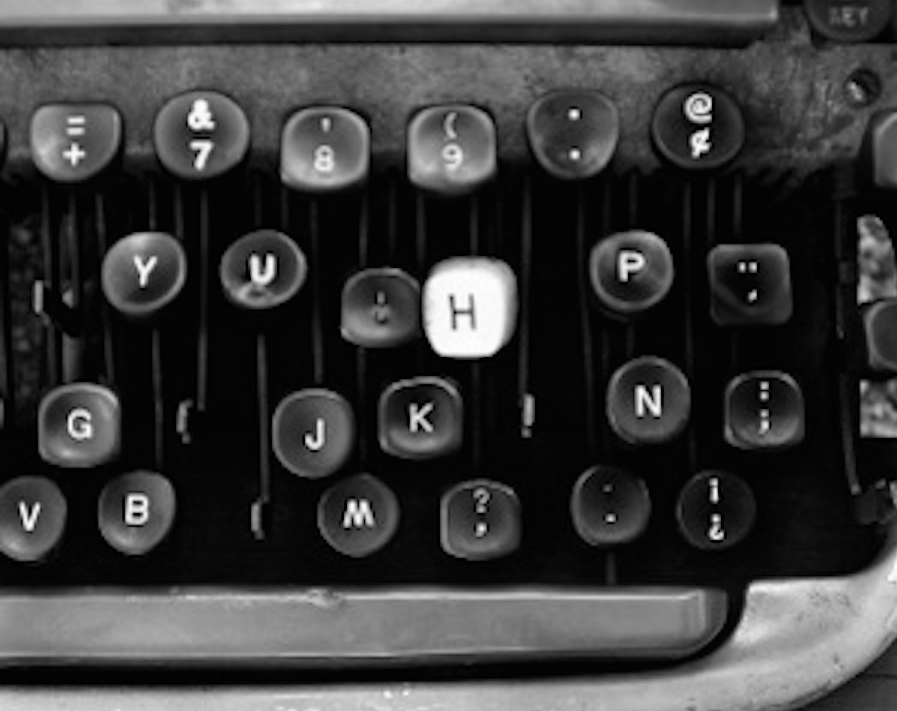Following our post on Reading For Recovery, we thought you might enjoy an old article we had filed away.
Writers who drink are old hat. But what about writers who quit drinking? Tom Shone studied them for his excellent 2009 novel ‘In The Rooms…’
Article from INTELLIGENT LIFE Magazine, Summer 2009
John Cheever was most unhappy to be picked up for vagrancy by the cops. “My name is John Cheever!” he bellowed. “Are you out of your mind?” Found sharing some hooch with the down-and-outs in downtown Boston, he was promptly admitted to Smither’s Alcoholism Treatment Centre on Manhattan’s East 93rd Street, where he shared a room with a failed male ballet dancer, a delicatessen owner and a smelly ex-sailor. “The ballerina is up to his neck in bubble bath reading a biography of Edith Piaf,” he noted in his journal. He spent most of his time in group therapy correcting his counsellor’s grammar. “Displaying much grandiosity and pride,” they wrote in their notes. “Very impressed with self.” Eventually he fell silent. Four weeks later he emerged, shaky, fragile and subdued. “Listen, Truman,” he told Truman Capote. “It’s the most terrible, glum place you can conceivably imagine. It’s really really, really grim. But I did come out of there sober.”
He was the first American author of his rank to do so. Much ink has been spilled on the question of why so many writers are alcoholics. Of America’s seven Nobel laureates, five were lushes—to whom we can add an equally drunk-and-disorderly line of Brits: Dylan Thomas, Malcolm Lowry, Brendan Behan, Patrick Hamilton, Philip Larkin, Kingsley Amis, all doing the conga to (in most cases) an early grave. According to Donald Goodwin in his book “Alcohol and the Writer”: (http://www.amazon.com/Alcohol-Writer-Donald-W-Goodwin/dp/0140126554)
Writing involves fantasy; alcohol promotes fantasy. Writing requires self-confidence; alcohol bolsters confidence. Writing is lonely work; alcohol assuages loneliness. Writing demands intense concentration; alcohol relaxes.
There is good reason to be suspicious of this: one could as easily come up with a similar list for firefighters, or nannies, the only real difference being that writers are more vocal about it—their denial more pithily expressed. As Philip Amis said of his father’s bottle-of-whisky-a-day habit: “He was Kingsley Amis and he could drink whenever he wanted because he bought it with his money, because he was Kingsley Amis and he was so famous.”
In America William Faulkner and Scott Fitzgerald were the Paris and Britney of their day, caught in the funhouse mirror of fame, their careers a vivid tabloid mash-up of hospitalisations and electroshock therapies. “When I read Faulkner I can tell when he gets tired and does it on corn just as I used to be able to tell when Scott would hit it beginning with ‘Tender is the Night’,” said Hemingway, playing the Amy Winehouse role of denier-in-chief. He kept gloating track of his friends’ decline, all the while nervously checking out books on liver damage from the library; by the end, said George Plimpton, Hemingway’s liver protruded from his belly “like a long fat leech”.
In fact none of these authors would write much that was any good beyond the age of 40, Faulkner’s prose seizing up with sclerosis, Hemingway sinking into unbudgeable mawkishness. When Fitzgerald went public about his creative decline in Esquire, in a piece entitled “The Crack Up”—a prototype for all the misery memoirs we have today—Hemingway was disgusted, inviting him to cast his “balls into the sea—if you have any balls left”. Today, of course, “The Crack Up” would be shooting up the besteller lists, and Fitzgerald would be sat perched on Oprah’s couch talking about his struggle and his co-dependent relationship with Ernest, proudly wearing his 90-day sobriety chip, but in the 1930s, the recovery industry, then in its infancy, was regarded by most with the enthusiasm of a cat approaching a bathtub.
“AA can only help weak people because their ego is strengthened by the group,” said Fitzgerald. “I was never a joiner.” Certainly, if what you’re used to is rolling champagne bottles down Fifth Avenue beneath the light of a wanton moon or getting into the kind of barfights that make a man feel alive, truly alive, the basic facts of recovered life—the endless meetings, the rote ingestion of the sort of clichés the writer has spent his entire life avoiding—are below prosaic. Richard Yates professed to find AA meetings impossibly maudlin: “Is just functioning living at all?” he moped, claiming he could not write a single sentence sober. His fall was even more vertiginous, and emblematic of the 1950s; like Kerouac, he was to write one masterpiece (“Revolutionary Road“), then nothing.
Only the advent of rehab, in the 1960s, interrupted this fall—enforced incarceration flattering the writer’s sense of drama, the Kafkaesque me-versus-the-system fable playing out in his head. John Berryman sat in rehab looking like a “dishevelled Moses”, his shins black and blue, his liver palpitating, reciting Japanese and Greek poets and quoting Immanuel Kant. When he found out the doctors around him were serious he buckled under, declaring himself “a new man in 50 ways!” and affecting an ostentatious “religious conversion” which he proceeded to pour into a series of poems to his Higher Power (“Under new governance your majesty”). Ten days after leaving he found he needed a quick stiff one to get the creative juices flowing again and downed a quart of whisky. “Christ,” was all he could say the next morning.
Second time around he got himself a sponsor named Ken, and tried prose, writing a novel about his recovery, called “Recovery”, which goes some way to explaining why the recent spate of bestsellers on the subject have been non-fiction. Pretentious and opaque, including “a bloody philosophy of both history and Existens, almost as heavy as Tolstoy”, Berryman’s book remains an object lesson in how not to recover, as Donald Newlove has pointed out:
First you hang on to all your old romances about your illness, then you suck your old grandiosity for every drop that’s still in it, you vigorously emphasise your uniqueness among the clods who might be recovering with you, and then you defend to the death your right to self-destruction…Starting afresh meant that a massive part of his work so far was self-pity and breast-beating. That was the last mask he couldn’t rip off. It was like tearing the beard from his cheeks.
The book remained unfinished; within weeks of leaving Berryman threw himself from Minneapolis’s Washington Avenue bridge, his body splitting like a melon upon impact with the ground.
It may seem a little impertinent to gauge the literary merits of sobriety—you cannot write books of any discernible quality if you are dead—but clearly, sobering up is one of the more devastating acts of literary criticism an author can face. John Cheever’s alcohol counsellors noted: “He dislikes seeing self negatively and seems to have internalised many rather imperious upper-class Boston attitudes which he ridicules and embraces at the same time”—which must rank among the sternest reviews he ever got.
Cheever emerged from rehab a different man, 20 pounds lighter, feeling 20 years younger. “I am changed violently,” he said, and so too was his work. After years of squeezing toothpaste out of an ever tighter tube, he powered his way through a new novel, finishing it within a year. “It is as if our Chekhov had tucked into a telephone booth and reappeared wearing a cape and leotard of Dostoyevsky’s ‘Underground Man’,” wrote the New York Times of the resulting book, “Falconer”, a “dark radiant fable” about a man’s escape from prison, whose frank depictions of homosexuality and addiction shocked the Book of the Month crowd expecting Cheever’s usual martini-hour melancholy. It was a work of liberation in every sense.
We don’t know how this would have played out, over time—Cheever was to die of kidney cancer within a few years—but for the effects of long-term sobriety we can turn to Raymond Carver, who, after the usual pile-up of emergency rooms, courtrooms, detox centres and drying-out clinics, got sober in 1977. For a year he wrote nothing (“I can’t convince myself it’s worth doing”), just played bingo and got fat on doughnuts, but then he remarried, and he went on to write some of his best work—he was nominated for a Pulitzer prize for his story collection, “Cathedral”, illuminating the downtrodden blue-collar lives he had written about before with unexpected moments of revelation and connection. He addressed this “new opening up” in his work in a poem entitled “Gravy”:
No other word will do. For that’s what it was. Gravy. Gravy, these past ten years. Alive, sober, working, loving, and being loved by a good woman. Eleven years ago he was told he had six months to live at the rate he was going. And he was going nowhere but down. So he changed his ways somehow. He quit drinking! And the rest? After that it was all gravy, every minute of it…
The radiance of late Carver is so marked as to make you wonder how much the imperturbable gloom of late Faulkner, or the unyielding nihilism of late Beckett—like the cramped black canvases with which Rothko ended his career—were dictated by their creators’ vision, and how much they were simply symptoms of late-stage alcoholism. This suspicion is open to the counter-charge: this contentment and bliss is all very well, but readers may simply prefer the earlier, messed-up work. Charles Bukowski teased himself along similar lines when the old whore-monger found himself writing poems about his cats and “little Bluebird in my heart”:
I say, stay down, do you want to mess me up? you want to screw up the works? you want to blow my book sales in Europe?
Certainly, for those who trade a little too heavily on darkness, the Ozzy Osbournes of the literary world, the transition can be a rocky one. Stephen King says he cannot remember writing “Cujo”, he was so loaded; but after his family staged an intervention in 1987, emptying the contents of his garbage onto his living-room floor—cocaine, beer cans, Xanax, NyQuil, Valium, marijuana—he quit, and the result was a marked slackening of tension in his work. One of the things that made “The Shining” such a great novel about falling off the wagon was that King didn’t know that was what it was about—it was written from inside the belly of an obsession. Once he worked out what the real monster in the closet was, his work took on a therapeutic air, more concerned with the exorcising of internal demons than supernatural ones; it became baggier too, as if the elimination of one indulgence had forced a sideways move into another: the writing became drinking by other means.
From which we can conclude that the writer who can be most grateful he never has to get sober is Salman Rushdie. Minimalists tend to do better than maximalists. Flinty and workmanlike seem to win the day. (Elmore Leonard said that attending AA meetings had made him a “better listener”.) It is the self-proclaimed geniuses who suffer. Writers of long sentences seem to do worse than the writers of short ones—Faulkner’s and Hemingway’s endless clauses being the epitome of the drunken style. Comparing yourself to Tolstoy is a bad sign. (If it has to be a Russian, Chekhov is a much better bet.) Americans do much better than Brits (a recent biography of Kingsley Amis lists drinking under “Activities and Interests”). Americans from the north seem to do better than Americans from the South. Prose-writers fare better than poets. If you are an American poet from the South, you might as well walk into a bar right now. And don’t, whatever you do, write a novel about recovery.

